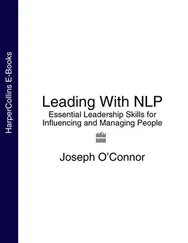John Gray - Children Are from Heaven - Positive Parenting Skills for Raising Cooperative, Confident, and Compassionate Children
Здесь есть возможность читать онлайн «John Gray - Children Are from Heaven - Positive Parenting Skills for Raising Cooperative, Confident, and Compassionate Children» весь текст электронной книги совершенно бесплатно (целиком полную версию без сокращений). В некоторых случаях можно слушать аудио, скачать через торрент в формате fb2 и присутствует краткое содержание. Год выпуска: 1999, ISBN: 1999, Издательство: HarperCollins e-books, Жанр: psy_childs, sci_pedagogy, Психология, на английском языке. Описание произведения, (предисловие) а так же отзывы посетителей доступны на портале библиотеки ЛибКат.
- Название:Children Are from Heaven: Positive Parenting Skills for Raising Cooperative, Confident, and Compassionate Children
- Автор:
- Издательство:HarperCollins e-books
- Жанр:
- Год:1999
- ISBN:978-0-06-133886-1
- Рейтинг книги:4 / 5. Голосов: 1
-
Избранное:Добавить в избранное
- Отзывы:
-
Ваша оценка:
- 80
- 1
- 2
- 3
- 4
- 5
Children Are from Heaven: Positive Parenting Skills for Raising Cooperative, Confident, and Compassionate Children: краткое содержание, описание и аннотация
Предлагаем к чтению аннотацию, описание, краткое содержание или предисловие (зависит от того, что написал сам автор книги «Children Are from Heaven: Positive Parenting Skills for Raising Cooperative, Confident, and Compassionate Children»). Если вы не нашли необходимую информацию о книге — напишите в комментариях, мы постараемся отыскать её.
Children Are from Heaven: Positive Parenting Skills for Raising Cooperative, Confident, and Compassionate Children — читать онлайн бесплатно полную книгу (весь текст) целиком
Ниже представлен текст книги, разбитый по страницам. Система сохранения места последней прочитанной страницы, позволяет с удобством читать онлайн бесплатно книгу «Children Are from Heaven: Positive Parenting Skills for Raising Cooperative, Confident, and Compassionate Children», без необходимости каждый раз заново искать на чём Вы остановились. Поставьте закладку, и сможете в любой момент перейти на страницу, на которой закончили чтение.
Интервал:
Закладка:
All parents want their children to know what is right and then on that basis, to act wisely. Until this global shift in consciousness occurred, that was not possible. Parents employed punishment and other fear and guilt-based strategies to deter children from being bad and motivate them to be good. Today children are born with a new potential to develop this inner knowing. Their sensitivity gives them this ability, but it can cause them to self-destruct when outdated fear-based strategies are employed. Whatever treatment goes in either comes right back out or becomes self-directed.
Children today tend to self-destruct in
response to fear-based parenting.
Every child born today has the innate ability to know what is right and wrong. They have the potential to develop a conscience, but that ability must be nurtured if it is to come out.
Positive-parenting practices awaken that inner potential in our children. The result of being connected to an inner conscience is that our children are well behaved but not mindlessly obedient. They respect others, not out of fear, but because it feels good. They are willing to and capable of negotiating. They can think for themselves. They are willing to challenge authority figures. They are creative, cooperative, competent, compassionate, confident, and loving. By learning and applying positive-parenting skills, not only does parenting get easier and easier for us, but the rewards for our children are so much greater. There is no greater reward in life than seeing your children succeed in making their dreams come true and feeling good about themselves.
3
New Skills to Create Cooperation
The sooner you experience the power of positive parenting, the easier it is to give up fear-based parenting skills. Just give yourself one week to practice the ideas in this chapter, and you will never want to go back. Remember that for positive parenting to work you can’t revert back to punishing or threatening your children. You will find that your children will magically begin to respond. This is true for children of all ages. Even your teenagers will respond. The earlier you start, the more quickly your children will respond. When children or teenagers are used to being controlled by fear, it can take a little longer, but it still works. It is never too late to apply these positive-parenting skills. In many cases, they are skills that will help you communicate better with your spouse as well.
ASK, BUT DON’T ORDER OR DEMAND
To create cooperation is to instill in children a willingness to listen and to respond to your requests. The first step is to learn how to direct your children most effectively. Consistent ordering does not work. Think about your own experience at work.
Would you like someone always telling you what to do? A child’s day is filled with hundreds of orders. It is no wonder that mothers complain their children don’t listen. Wouldn’t you just tune out if someone nagged you all the time?
A child’s life is filled with orders, for example: Put this away, don’t leave that there, don’t talk to your brother that way, stop hitting your sister, tie your shoes, button your shirt, go brush your teeth, turn off the TV, come to dinner, tuck in your shirt, eat your vegetables, use your fork, don’t play with your food, stop talking, clean up your room, clean up this mess, sshh, get ready for bed, go to bed now, get your sister, walk — don’t run, don’t throw things in the house, watch out, don’t drop that, stop yelling — and on and on, again and again. Just as parents become frustrated nagging a child over and over, the child just tunes the parents out. Repetitive orders weaken the lines of communication.
The positive-parenting alternative skill to ordering, demanding, and nagging is asking or requesting. Wouldn’t you rather be asked by your boss (or spouse) rather than be told? Not only do you respond better, but your children will as well. It is a very simple shift but it takes lots of practice.
For example, instead of saying, “Go brush your teeth,” say, “Would you go brush your teeth?” Instead of saying, “Don’t hit your brother,” say, “Would you please stop hitting him now?”
USE “WOULD YOU” AND NOT “COULD YOU”
Make sure that, when phrasing your request you use the words “will” or “would” instead of “can” or “could.” “Will you” works wonders, while “could you” or “can you” creates resistance and confusion. When you say, “Would you clean up this mess?” you are making a request. When you say, “Could you clean up this mess?” you are posing a question about competence. You are asking, “Do you have the ability to clean up this mess?” To motivate cooperation, you have to be very direct and very clear about what you want. You must first present your request in a way that evokes cooperation.
It is fine to say, “Could you clean up this mess?” if you are really asking about their competence. If you are asking a child to do something, be direct. Most of the time parents will say “could you” as a way of ordering their children with a little guilt tossed in. Most often parents do so because that is how their parents behaved and it is automatic.
Although it may seem like a little thing, how you ask makes a huge difference in children’s willingness to cooperate.
“Could you clean up this mess?” is not a
request; it is an order with a lot of confusing
indirect messages thrown in.
Regardless of intent, when a parent speaks in a bothered, frustrated, disappointed, or upset tone and uses “could you” or “can you,” a child may receive indirect messages. If the parent says, “Could you clean up this mess?” the child may hear any of the following messages:
“You should clean up this mess.”
“You should have already cleaned up this mess.”
“I shouldn’t have to ask you.”
“I have asked you before to clean up your messes.”
“You are not doing the things I have asked you to do.”
“You are not acting your age.”
“You are a real pain to me.”
“Something is wrong with you.”
“I am in a big hurry and I can’t do everything.”
Although none of these messages may be directly intended, it is what children hear. All this indirectness and guilt sabootages the possible results of positive parenting. After you practice these techniques, you will find that directness without guilt or fear is much more effective.
To understand this more clearly, let’s imagine you could map the activity in children’s brains. When you ask a “could you” question, there would probably be activity in his left brain wondering what exactly you mean. If you use “will” or “would,” there would be activity in the right brain and the motivation center would be activated.
Using “will” or “would” bypasses much
of children’s resistance and invites him
to participate.
Take a moment to pretend that you are a child hearing either of these two different questions: “Could you go to bed and stop talking?” or “Would you go to bed and stop talking?” At first, it feels like the “could you” phrase is more polite. “Would you go to bed and stop talking?” seems more authoritarian and may be too controlling. Then, as you continue to feel the difference, “could” sounds nice but there is also a hidden order saying, “I am asking you nicely but you’d better do it or else.” Then, as you continue to consider “Would you go to bed and stop talking?” it seems to be inviting you to cooperate. If you want to object, you are free to. Clearly, this is the message we want to give our children.
Читать дальшеИнтервал:
Закладка:
Похожие книги на «Children Are from Heaven: Positive Parenting Skills for Raising Cooperative, Confident, and Compassionate Children»
Представляем Вашему вниманию похожие книги на «Children Are from Heaven: Positive Parenting Skills for Raising Cooperative, Confident, and Compassionate Children» списком для выбора. Мы отобрали схожую по названию и смыслу литературу в надежде предоставить читателям больше вариантов отыскать новые, интересные, ещё непрочитанные произведения.
Обсуждение, отзывы о книге «Children Are from Heaven: Positive Parenting Skills for Raising Cooperative, Confident, and Compassionate Children» и просто собственные мнения читателей. Оставьте ваши комментарии, напишите, что Вы думаете о произведении, его смысле или главных героях. Укажите что конкретно понравилось, а что нет, и почему Вы так считаете.












